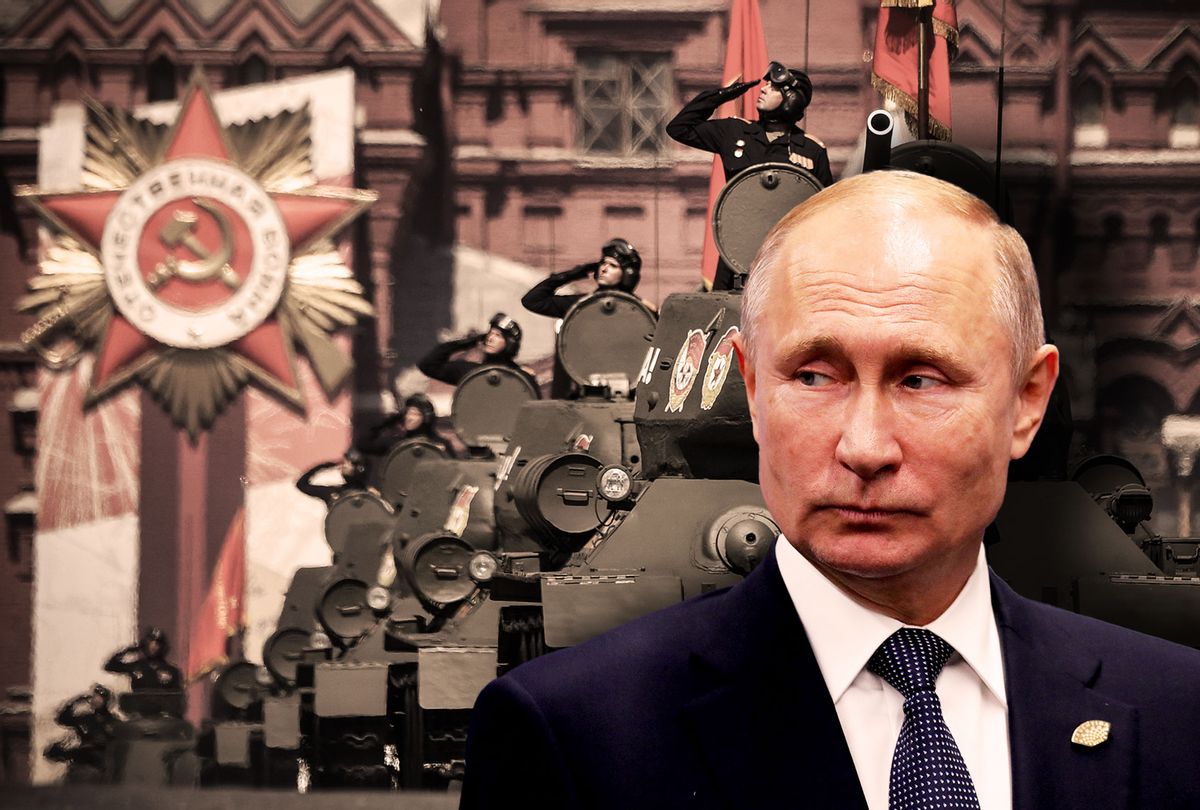Russian President Vladimir Putin on Monday ordered his country's Defense Ministry to send troops into the Russian-separatist-controlled Donetsk and Luhansk People's Republics in Eastern Ukraine, whose independence Putin formally recognized in a speech given just hours earlier.
This latest provocation is another escalation in what could be the largest military offense in Europe since World War II.
According to reporting in "The New York Times," Putin issued decrees for "peacekeeping functions" to protect Russian-speaking residents, although "it was not immediately certain whether the Russian troops would remain only on the territory controlled by the separatist republics, or whether they would seek to capture the rest of the two Ukrainian regions whose territory they claim."
And "it was unclear if a long-feared Russian full-scale invasion of Ukraine had begun. The separatists might have invited Russian forces in, but neither Ukraine nor the rest of the world views the so-called republics as anything but Ukrainian territory," the "Times" wrote.
Putin's motives, however, are much less ambiguous. For Putin, reclaiming the former Soviet Union's defunct borders is personal.
"By seeking to redraw the post-Cold War boundaries of Europe and force Ukraine back into Moscow's orbit, Mr. Putin is attempting nothing less than to upend the security structure that has helped maintain an uneasy peace on the continent for the past three decades," the "Times" explained. "Now edging toward the twilight of his political career, Mr. Putin, 69, is determined to burnish his legacy and to correct what he has long viewed as one of the greatest catastrophes of the 20th century: the disintegration of the Soviet Union."
Putin also maintains that the North Atlantic Treaty Organization's eastward expansion over the last four decades represents an existential security threat to Russia. Ukraine, a democracy that is not a NATO member, is the lone buffer between Russia and the Western alliance.
As for his end game, Putin, the "Times" noted, "appears intent on winding back the clock 30 years, to just before the collapse of the Soviet Union."
On Monday evening, "The Washington Post" Editorial Board stressed that Putin's "true reason to target Ukraine is not Russian national security but preserving his own power in Moscow, which would be threatened by a successful democratic experiment in a former Soviet republic of Ukraine's size and cultural importance."
Now that Putin has formally deployed combat forces into Ukraine, the "Post" editors recommended that the United States and the European Union impose crippling economic sanctions onto Russia immediately.
"After Monday, it is unfortunately clear that Mr. Putin has not been deterred, war is likely, and there is no longer any reason to wait in imposing sanctions — even extending them beyond the breakaway regions, which the White House immediately targeted," the Board concluded. "That would be the first step in decisively responding to this geopolitical crisis, but it can hardly be the last."




Shares